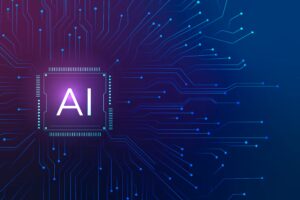The Power of AI: Transforming Industries and Shaping the Future

In today’s rapidly evolving technological landscape, Artificial Intelligence (AI) stands as a beacon of innovation, revolutionizing industries and redefining the way we perceive the capabilities of machines. From streamlining processes to driving personalized experiences, the significance of AI cannot be overstated.
Boosting Efficiency with Automation
One of the most compelling aspects of AI lies in its ability to automate tasks across various industries, boosting efficiency and productivity. Whether it’s optimizing manufacturing processes or enhancing customer service with AI-powered chatbots, automation has become synonymous with progress.
Power of Data Analysis
In the era of big data, AI emerges as a formidable ally, capable of analyzing vast amounts of information with lightning speed and unparalleled accuracy. From healthcare diagnostics to financial predictions, AI algorithms extract valuable insights, empowering decision-makers to navigate complex challenges with confidence.

Personalized Experiences
The era of one-size-fits-all solutions is behind us, thanks to AI’s prowess in personalization. Platforms like Netflix and Amazon utilize AI algorithms to curate content and recommendations tailored to individual preferences, enriching user experiences and fostering deeper engagement.
Informed Decision-Making
In today’s fast-paced world, the ability to make informed decisions swiftly is paramount. AI systems excel in analyzing complex scenarios, providing data-driven insights that fuel strategic decision-making across domains such as finance and healthcare, where precision is non-negotiable.
Driving Innovation
AI serves as a catalyst for innovation, driving the development of groundbreaking technologies that redefine the boundaries of possibility. From self-driving cars to virtual assistants, AI-powered solutions are shaping the future and paving the way for unprecedented advancements.
Bridging Accessibility Gaps
AI has the transformative potential to bridge gaps and make services more accessible, particularly in underserved communities. Whether it’s delivering instant support through AI-powered chatbots or facilitating remote healthcare consultations, AI is democratizing access to essential services.
Evolution of AI: From Myth to Reality
The journey of AI traces back to ancient times, where myths of artificial beings captivated the imagination. However, it was in the 1950s that AI emerged as a formal field of study, with pioneers like Alan Turing and John McCarthy laying the groundwork for the revolution that would follow.
Fundamentals of AI
At its core, AI encompasses a spectrum of technologies, including Machine Learning (ML) and Neural Networks, each playing a crucial role in simulating human intelligence. While ML enables computers to learn from data, Neural Networks mirror the intricate workings of the human brain, paving the way for Deep Learning and its ability to uncover intricate patterns within data.

Narrow AI vs. General AI
While Narrow AI specializes in performing specific tasks within predefined parameters, General AI aspires to emulate the breadth of human intelligence. While Narrow AI powers virtual assistants and recommendation systems, General AI remains the holy grail of AI research, promising capabilities akin to human cognition.
AI’s Impact Across Sectors
From healthcare to finance, AI applications span diverse sectors, revolutionizing processes and unlocking new possibilities. Whether it’s revolutionizing medical diagnostics or optimizing energy distribution, AI’s impact is felt far and wide, reshaping industries and driving progress.
Responsible Innovation
As we embark on this journey into the realm of AI, it’s crucial to tread carefully, mindful of the ethical and societal implications that accompany such profound technological advancements. By embracing responsible innovation, we can harness the full potential of AI while safeguarding against unintended consequences.
Conclusion
In closing, the transformative power of AI holds the key to a future brimming with possibilities. From enhancing efficiency to fostering innovation, AI is reshaping industries and revolutionizing the way we live and work. As we navigate this ever-evolving landscape, let us embrace the promise of AI with a steadfast commitment to responsible and ethical innovation, ensuring a brighter tomorrow for generations to come.